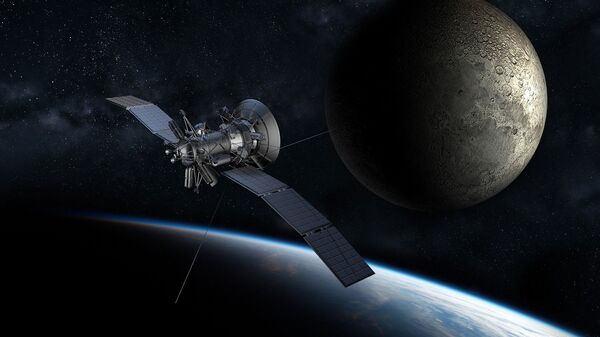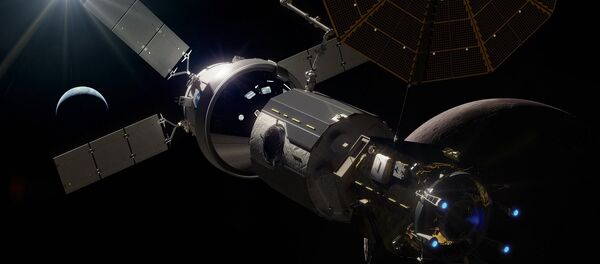According to the sources, the EU chief Brexit negotiator is contemplating an offer to the UK that will give London an advantage over the use of the encrypted service compared to other third-party nations.
Radio Sputnik has discussed the EU allowing UK law enforcement agencies and military access to the Galileo satellite system post-Brexit with Professor Sa'id Mosteshar, director of the London Institute of Space Policy and Law.
Sa'id Mosteshar: One thing is that has not yet happened; of course, there's not yet an agreement as to how that might happen. And it's likely that there will be exchanges and information arrangements between the UK and the EU. There are already a lot of information exchanges with third-party countries, non-members by the EU. So, to that extent, I think that there will be a quid pro quo as it were with the UK and security is clearly an international affair.
READ MORE: Be Nice or Be Bombed? GCHQ Chief Offers Coded Warning to Brussels Over Brexit
Sputnik: What is the importance of uninterrupted access to the encrypted signal for British police and armed forces?
Sa'id Mosteshar: The benefit of Galileo as a whole is that it is more accurate than the US system, the GPS system, to which there's already access. So there's this additional more accurate and better information that will be available. The system will be compatible with GPS and Glonass, the Russian system, so it can provide that additional bit of information. To say that it will be a terrific advantage, is perhaps overstating it, but it will provide much better and more accurate information.
READ MORE: 'Elon Musk of China' Aims to Lead His Business Onto the International Stage
Sa'id Mosteshar: I'm not quite sure what you mean by the framework as a whole. There are two aspects of the Galileo system. One is developing the system itself and the manufacturing and developing the security software, etc. And there's also the other side which is the level of access. But on the whole, I would say that the UK is likely to be the loser in the sense that it will then be excluded from that better information.
Sputnik: How likely is the United Kingdom to be looking into developing its own independent satellite network? How costly and time-consuming would that be?
Sa'id Mosteshar: In theory, of course, the UK could develop an independent GNSS and PNT system, that's the Global Navigation Satellite System and a Positioning, Navigation and Timing system, which is what Galileo provides. That will indeed be costly. The Galileo system has taken, not from conception but from the first commitment of funding, it's taken about 15 years to develop; and it will be a little bit more, about 18 years, when it comes fully into operation, although it's already providing very good data.
READ MORE: UK Military's New Spaceport to Deliver Emergency Aid Once Complete (VIDEO)
The other side of that also is that if the UK did develop its own sovereign system it would put some strain on its relationship with other ESM members and could to an extent isolate the UK from the rest of the space community, and it would also complicate data sharing with the EU. So I would say that really the more productive and perhaps likely route would be to try and reach an arrangement on Galileo with the EU.
The views expressed in this article are solely those of Professor Sa'id Mosteshar and do not necessarily reflect the official position of Sputnik.








